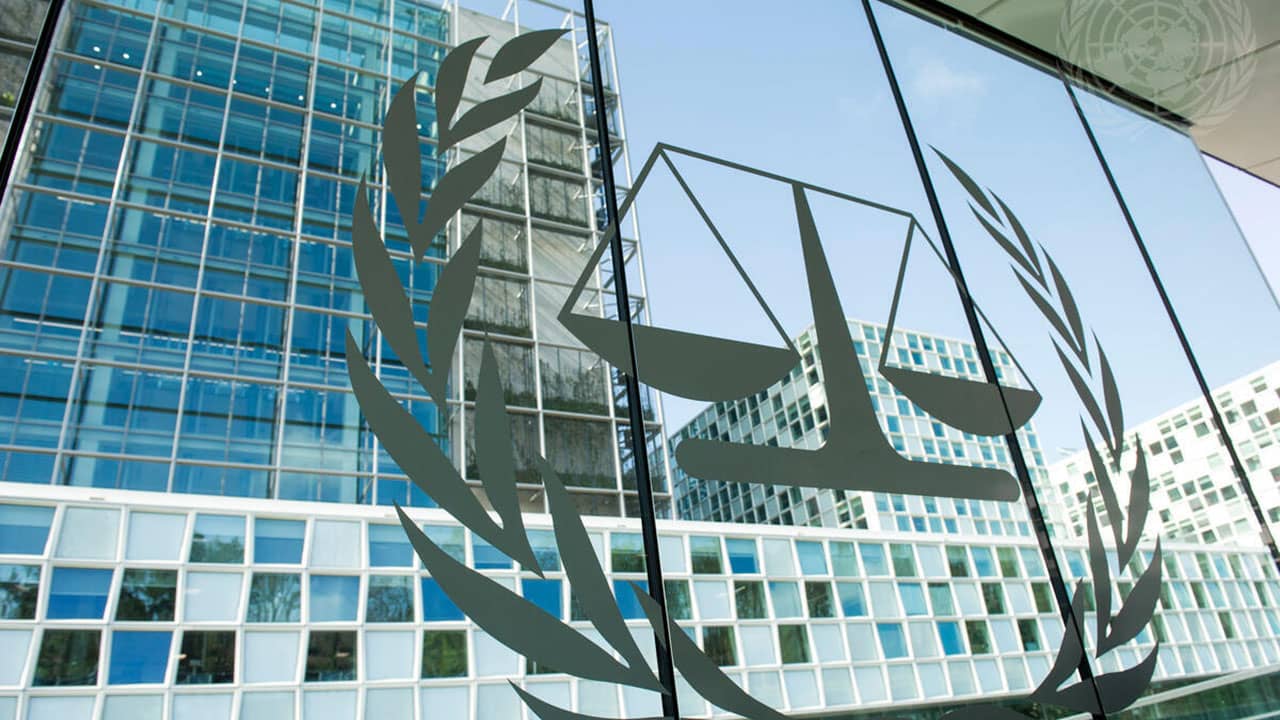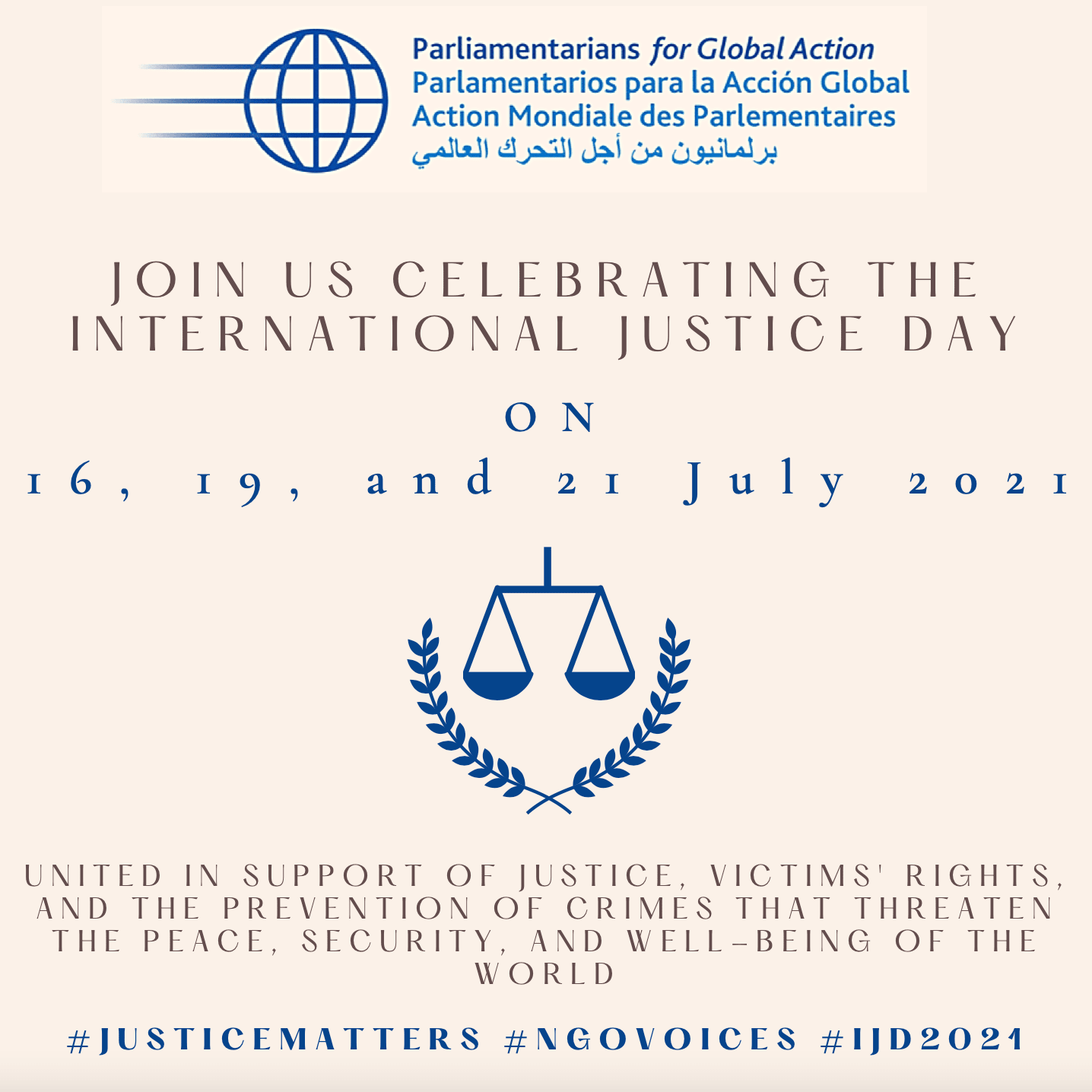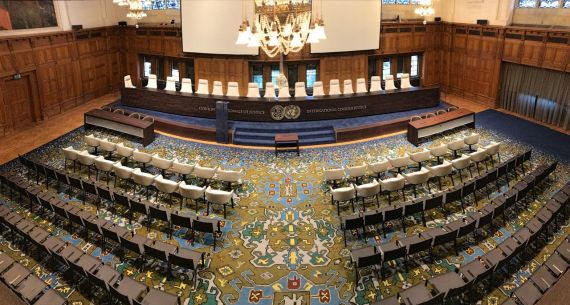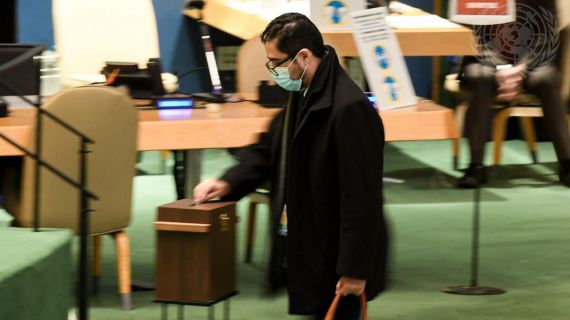
New York/The Hague
As we celebrate International Justice Day on 17 July, Parliamentarians for Global Action (PGA) wishes to recall the importance of standing united in support of justice, victims’ rights, and the prevention of crimes that threaten peace, security, and well-being of our world.
Parliamentarians worldwide play a unique role in strengthening the Rule of Law and support international justice using their legislative prerogatives and publicly expressing their support for the Rome Statute system, especially the indispensable work of the International Criminal Court (ICC).
For international justice to be truly universal and effective, all States must ratify and implement the Rome Statute of the ICC in their national legal systems. PGA notes with great enthusiasm the ongoing efforts made in The Gambia to pass the Implementation Bill of the Rome Statute into law and the critical and relentless efforts made by PGA members and Civil Society Organizations towards strengthening international justice in Ukraine, which has led to the adoption of the draft law no. 2689 on the “amendments to certain legislative acts on the Enforcement of International Criminal and Humanitarian Law” by the Verkhovna Rada on 20 May 2021.
The ICC does not replace national criminal justice systems; rather, it seeks to complement them. Therefore, the adoption and implementation of these comprehensive laws are of utmost importance to enable national jurisdictions to achieve accountability for international crimes committed not only in their own territory but elsewhere.
PGA further recalls that the universal ratification of the amendments to the Rome Statute will not only give effect to the promise made by the international community of “never again”, but also reduce impunity and protect humanity from genocide, crimes against humanity, war crimes, and the crime of aggression. We applaud the work of our Members in Bolivia which led to the country’s submission of the instrument of ratification of the crime of aggression to the United Nations. Similar efforts have been carried out in countries such as Norway, Croatia, and Portugal who have ratified several amendments this year.
Moreover, cooperation from States Parties is vital for the well-functioning of the Court. With the new Prosecutor, Mr. Khan, and a potentially heavy caseload, the Office of the Prosecutor will need States Parties to facilitate access to evidence on their territory, ensure the adequate protection of witnesses and victims, and guarantee its judicial independence. To that end, PGA exhorts its global membership to continue ensuring that their government fully supports the ICC as the world’s only permanent international tribunal mandated to prosecute individuals responsible for international crimes, enter into voluntary cooperation agreements with the ICC, and provides cooperation at all stages of the Court’s activities. We also call on our members to continue their outstanding efforts to draft and introduce laws on cooperation with the ICC in parliament, as has notably been the case in Chile and Ecuador.
Additionally, much more support is needed to share the burden of cooperation collectively. The absence of clear cooperation processes may lead States to use inappropriate mechanisms that are not suitable for the Court. PGA urges legislators to support the implementation of these laws as they increase legal certainty both for States Parties and for the Court, optimize the cooperation requests made by the Court, and allow an effective participation in the international justice system.
Finally, as the Court faces ever-growing threats, PGA calls upon legislators to take advantage of public fora, international, regional, or national events, and recognized international days, to reiterate their strong commitment and support towards the Court. While 74 out of 123 States Parties to the ICC already publicly confirmed in November 2020 their unwavering support for the Court after the so-called “sanctions” imposed on ICC officials, this is not enough.
The long-term value of the ICC and the Rome Statute system lies in ending the impunity of perpetrators of past and ongoing crimes and preventing future crimes. Without effective cooperation and support, and without proper domestic prosecutions under the principle of complementarity, the Rome Statute system will be more symbolic than effective. The Rome Statute system has now changed the way the world looks at core crimes under international law: since the establishment of this permanent international jurisdiction in The Hague, national jurisdictions have simultaneously been solicited and empowered to prevent impunity so that future generations can thrive in a more peaceful and just world.
The Court and domestic jurisdictions are not a perfect system, and their combined action certainly needs improvement, also taking stock from recent achievements (e.g., the domestic proceedings against former Sudanese President Al-Bashir to be followed by the essential ICC trial on genocide, crimes against humanity, and war crimes charges relating to Darfur), but if all relevant stakeholders work together, we can ensure that perpetrators of the most serious crimes of international concern do not enjoy safe-haven anywhere in the world.










